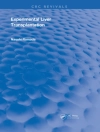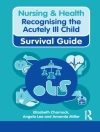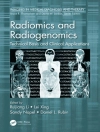This unique book delves into the mysteries of human fetal growth and maturation. Growing knowledge in genetics indicates that factors that impact on/influence fetal growth and maturation may have a role in determining a person’s health and disease in later years. Placental, maternal, environmental, nutrient as well as fetal genome factors each play a role in producing a healthy, unhealthy or abnormal baby. A study of fetal growth and maturation is therefore basic to the understanding of why fetal growth problems occur, what implications these can have for adult disease, and how clinical intervention can help to reverse growth problems. The present study will be comprehensive and will be a major contribution to the fields of gynecology, genetics, obstetrics, biochemistry, molecular biology and clinical medicine. It will include cutting edge research in the field as well as explorations on clinical interventions in fetal growth, which will not only add to existing knowledge but also prompt future research.
The two Editors are distinguished in their fields and both have extensive clinical and research experience. They felt that they could use their expertise to create a book that will help students, practitioners, researchers and others to understand the subject of gestation, growth and maturation and its implications from a multi-dimensional point of view, which will help them develop their own expertise in a cutting-edge and developing field. They have brought toget
her medical scientists, clinical practitioners, embryologists, endocrinologists, immunologists, gynecologists, obstetricians, reproductive and molecular biologists, geneticists and many others to create a state-of-the-art book on a subject with increasing demand for further knowledge. It aims to integrates different disciplines to give a holistic view of human fetal growth maturation.
Table des matières
Part 1. Introduction.- 1. What is Fetal Growth.- 2. Vaccination of the Unborn: A Perspective.- 3. Understanding the Growth of the Fetus in Utero from the Immunologist’s Angle.- 4. Intraamniotic Antigen and Disruption of Human Fetal Growth: A Study from 1978-2002 with Subsequent Follow Up.- 5. Foetal Growth and Development in the First Two Trimesters.- Part 2. Structural and Functional Fetal Development up to Second Trimester.- 6. Anthropometric Measurement of the Human Fetus.- 7. Human Fetal Carbohydrate Metabolism.- 8. Mucopolysaccharides, Water and Electrolytes of Human Fetal Organs.- 9. Urea Biosynthesis in Human Fetal Liver.- 10. Mechanism of Rejection of Human Fetal Adrenal Cortex.- 11. Development of Human Fetal Brain.- 12. Lipid Metabolism in the Human Fetus Development.- Part 3. Gene and Human Fetal Development up to Second Trimester.- 13. Gene Regulatory Networks and Epigenetic Modifications in Cell Fate Decisions During the Early Embryonic Development.- 14. Personal Human Life Begins with the Formation of Adult Type Hippocampus at 13th Week of Development.- 15. Dependence of Fetal Hairs and Sebaceous Glands on Fetal Adrenal Cortex and Possible Control from Epidermal Merkel Cells and Adrenal Medulla.- 16. Theoretical Postulation of the Embryological Basis of the Virgin Birth and Role of Embryonic Stem Cells Localized out of the Embryo.- 17. Aneuploidy in Human Preimplantation Embryos.- 18. The Potential Impact of Maternal Milk Consumption during Pregnancy on m TORC1-Driven Fetal Growth.- 19. Genetic Disease Specific Human Embryonic Stem Cell Lines.- Part 4. Impact of Stem Cell on Growth and Development of Human Fetus.- 20. Stem Cells in Growth and Development of the Human Fetus.- 21. The Mystery of the Survival of the Human Fetus in Utero.- Part 5. Fetal Endocrine Development up to Second Trimester.- 22. Glucose Metabolism in Foetus and Its Relationship with Foetal Insulin.- 23. Growth and Maturation of the Human Fetal Endocrine System Up to Twenty Four Weeks of Gestation.- Part 6. Fetal Immune Development: Up To Second Trimester.- 24. Development of Human Immune System in First and Second Trimester.- Part 7. Fetal Hepatic Development: Up To Second Semester.- 25. Growth and Development of Human Liver and Its Future Implications.- 26. Embryonic Development of Liver and its Future Implications.- Part 8. Fetal Cardiovascular Development: Up To Second Semester.- 27. Embryological Basis for Vascular Anomalies.- 28. Cardio Vascular Developmental Abnormality of the Human Fetus Appearing within Second Trimester: Detection and Treatment.- Part 9. Fetal Neurological Development: Up To Second Trimester and Its Implication in Adult Neurodegenerative Disease.- 29. Implications of Fetal Development and Neurodegeneration in Adult Life.- Part 10. Fetal Neuropsychiatric Development: Up To Second Trimester.- 30. Very Low Birth Weight Babies and Their Mental Health Outcome.- Part 11. Fetal Nephrological Development: Up To Second Trimester.- 31. Development of Renal Tissues in First Twenty Weeks.- Part 12. Fetal Haematological Development.- 32. Development of Heamopoiesis System Before Second Trimester of Pregnancy.- Part 13. Pharmacological Implication of Fetal Development: Up To Second Trimester.- 33. Liabilities of Fetus: As a Patient.- 34. Fetus as a Patient During the First and Second Trimester of Growth and Development.- 35. Structural and Functional Developmental Perspectives of the Placental Barrier and its Role in the Fetal Development During the 1st and 2nd Trimester.- Part 14. Surgical Implications of Fetal Development: Up To Second Trimester.- 36. Surgery of the Unborn/Fetal Surgery.- 37. Reflections on Reality: Towards Scarless Healing- Déjà Vu.- Part 15. Fetal Growth and Adult Life Implications.- 38. Implications of Gross IUGR in Adult Life with Respect to Some Major Diseases.- Part 16. Understanding Fetal Growth from the Perspective of Alternative Medicine.- 39. Growth and Development of the Human Fetus Up to 2nd Trimester: A Perspective of Traditional Chinese Medicine.- 40. Perspectives of Tribal Medicine During the First 6 Months of Pregnancy.- 41. General Perspectives and Applications of Unani Medicine in Pregnancy up to 2nd Trimester.- 42. Applications of Traditional Chinese Medicine Concpts in the Safety and Development of the Fetus During The 1st and 2nd Trimesters of Pregnancy.- 43. General Perspectives of Homeopathic Medicine During the First and Second Trimester of Pregnancy.- 44. Ayurvedic Perspectiveof the Pregnancy and Fetal Development During the First and Second Trimesters.- Part 17. Miscellaneous.- 45. Problems of Prematurity.- 46. Problms of Extreme Prematurity.- 47. Sequencing of Naturally Aborted Human Fetuses: A Resource for New Knowledge.- Part 18. Ethics and Human Fetal Tissue Research.- 48. Ethics Pertaining to the Use of Aborted Human Tissues for Research and Therapeutic Purposes.
A propos de l’auteur
Dr Niranjan Bhattacharya,
MBBS, MD (Ob/ Gyn)(Cal), MS (Gen Surg)(Cal), DSc (Med Science)(Cal), FACS (USA)
Head of the Dept of Regenerative Medicine and Translational Science Calcutta School of Tropical medicine, Calcutta, India
Dr. Bhattacharya started the Fellowship course in Regenerative Medicine and Translational Science, a first year course recognized by the West Bengal University of Health Sciences, for training post graduate doctors with interest in stem cell/progenitor cell research with implication in Regenerative medicine. He is the course coordinator of the programme since its inception on 16
th April 2013.
Prof. Phillip G. Stubblefield, MD
Professor, Department of Obstetrics and Gynecology
Boston University
School of Medicine
Co-Director, Fellowship in Family Planning and Clinical Investigation,
Boston Medical Center












